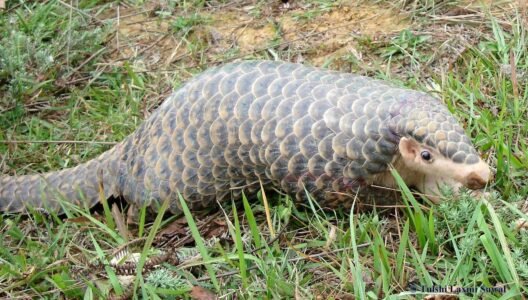Local illegal hunting and forest fires are increasingly recorded to threaten pangolins and their habitat in Nepal. Terai lowlands and Siwalik hill ranges are more vulnerable to the wildfires which are better known habitats for Chinese pangolin. However, the impacts of forest fires on wildlife are currently being neglected by local and national agencies. We conducted detailed surveys in 10 communities’ forests in three different wildfire prone districts of Bagmati province in central Nepal. The study assessed abundance of pangolins through key informant interviews, line transects survey as well as camera trapping and examined the impact of forest fire on the species and its habitat. Training workshops on pangolin and its habitat monitoring along with impact of forest fire and mitigation measures, were organized, and formed ten ‘community pangolin conservation groups’ for long-term monitoring. The trained local people were actively involved in research, awareness, monitoring the planted saplings as well as contributed in reduction of the forest fires. Fire extinguisher gears were provided to these groups. Door-to-door conservation awareness campaigns were conducted reaching over 13,000 households throughout this region. Around 12,000 saplings including that of fruits, medicinal plants and broad-leaves trees were planted and monitored for a year for habitat restoration. Also, seed money was provided to the community through their microfinance for pig farming and leaf plates production to empower local communities and diversify their livelihoods. Thus, this project has been very crucial for the sustainable and long-term local level conservation of pangolin and its habitat along with enhancement of local livelihoods in Nepal.
Posted on May 7, 2023

